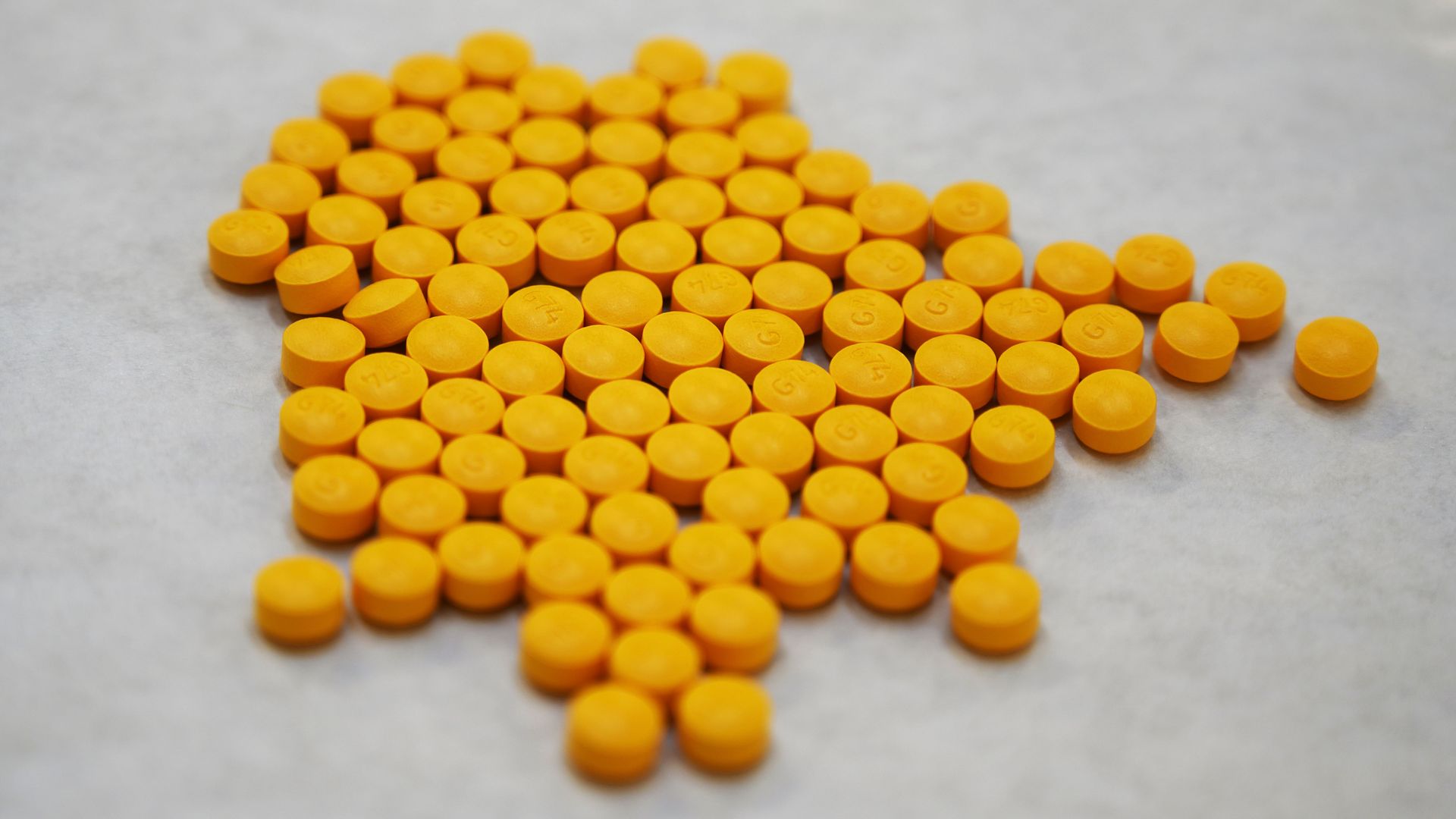Apr 1, 2021 - Health
White House: Deaths due to drug overdoses hit 88,000 during pandemic
Add Axios as your preferred source to
see more of our stories on Google.

Tablets believed to be laced with fentanyl are displayed at the Drug Enforcement Administration Northeast Regional Laboratory in New York. Photo: Don Emmert/AFP via Getty Images
